STARZ CEO Chris Albrecht is set to step down in early March of 2019. And that means the future of Outlander is a little unclear. Here’s why…
To be clear I am not saying Outlander is going to be canceled tomorrow. Outlander seasons 5 and 6 are still going to be broadcast to obsessenach screens across the globe.
But after season 6? Well, that’s a completely different story, and it all has to do with some major corporate gamesmanship. That’s because STARZ CEO Chris Albrecht’s departure actually goes way beyond just some CEO leaving his job. Driving the move are massive corporate titans including the likes of STARZ, Lionsgate, Walt Disney Company, the stock market, and even Apple.
Yes, that Apple.
But first, a little background…
Who the heck is Chris Albrecht and why does he matter?
A Hofstra grad, Albrecht worked for HBO for over 20 years with his culminating achievement in becoming the CEO of HBO. Nestled in at the top of HBO, and consequently becoming one of the most influential figures in the home entertainment market, he helped usher in the first golden age of television by approving top flight original programming such as The Sopranos, The Wire, Sex and the City, Band of Brothers, Curb Your Enthusiasm, Deadwood, and countless others. Essentially, you can thank him for how frakking amazing television has become over the past two decades.
STARZ named Albrecht as its new CEO in 2010 to lead the charge in dedicating at least 90 minutes of its weekly programming to original content. During his tenure as CEO, Albrecht oversaw the total revitalization of STARZ, made it a viable competitor in the home entertainment market, and approved highly successful and eclectic original content such as Power, Counterpart, The White Princess, American Gods, Spartacus, Black Sails, and yes, Outlander.
Why should Outlander fans care what happens to Albrecht?
Albrecht’s push for Outlander was one of his first major decisions at STARZ. While the show was going to be in the care of a massively talented showrunner in Ron D. Moore, it was incredibly expensive and STARZ had to partner with SONY to make it happen. So it was a gargantuan risk. But, Albrecht knew that risk could finally give STARZ the credibility it needed to compete with the big boys like HBO and Showtime.
As we learned in our interview of Outlander Executive Producer Maril Davis, gaining the rights to Outlander was an arduous process, and pitching it to networks was complicated because Outlander is a story that can be neither defined nor categorized easily. Davis noted that when Outlander was pitched at STARZ, Albrecht was immediately on board, given his uncanny ability to translate any entertaining story to an application on television.
Of all the network execs Moore and Davis pitched, Albrecht was the only person who insisted on reading the ENTIRE book series, and also demanded the TV adaptation NOT change the narrative from the books in any significant fashion. Albrecht, like Moore, staked his reputation, and his company’s reputation, on the success of Outlander.
In essence, you can thank Outlander’s current form to Chris Albrecht. Without Albrecht as its champion, Outlander the series would have either not been produced, or it could have looked very different from how we know it today.
In all reality, STARZ as a network also would be completely unrecognizable.
How do Albrecht, STARZ and LIONSGATE fit together?
STARZ was an independent company until 2016 when it was purchased by Lionsgate, an entertainment company that specializes in producing films and television series. You probably know many of Lionsgate’s productions, including zeitgest properties such as The Twilight Saga, The Hunger Games series, La La Land and Orange is the New Black.
For context, here’s the basic framework any Outlander fan needs to know about the relationship between Lionsgate and STARZ:
Lionsgate had a catalog of over 13,000 movies and TV shows that it owned, but it didn’t have an actual place to showcase them on a consistent basis. So the company purchased STARZ, which had developed its own on-demand app, had a broad archive of films and original content, and a loyal viewership of over 25 million subscribers who ravenously consumed original content like Outlander. Once fully merged, Lionsgate/STARZ had over 15,000 titles under its control, which transformed it into one of the largest independent entertainment companies in the world.
The true benefit for Lionsgate, however, is that it acquired the STARZ infrastructure — platform, as well as technology — that it needed to steadily showcase its content. STARZ profited because it took cash to invest in more original content, grow the company, and compete with not only the likes of HBO and Showtime, but even Netflix and Amazon.
It also worked on a personal level because Albrecht still retained executive control over STARZ and only had to answer one guy: Lionsgate CEO Jon Feltheimer.
The relationship between the CEOs seemed to perform swimmingly. That is, until the first fiscal quarter of 2018….
Fiscal woes, CEO drama, and how it all went wrong
This is essentially what happened: Lionsgate spent $4.4 BILLION dollars in cash and stock to acquire STARZ. While the triumphs of The Hunger Games and Twilight gave Lionsgate the ability to buy STARZ at that price, Lionsgate has since struggled to match the huge numbers it generated when it produced those wildly popular franchises.
As a result of Lionsgate’s newest films not being as popular, or being downright flops like its latest iteration of Robin Hood, the gobs of money stopped flowing and by late 2018 Lionsgate started posting millions of dollars worth of losses each quarter. In response, investors panicked, its stock tanked, and the company was forced to lay off a bunch of employees. Meanwhile STARZ was one of its few subsidiaries to post a profit.
You would think this profit would be a cause for celebration because Albrecht and STARZ essentially kept Lionsgate afloat. But that fiscal tension led to some infighting, different visions on how to proceed forward, and the situation started to get ugly between the two CEOs at Lionsgate/STARZ.
The REAL reason Albrecht is out
THR reports that Feltheimer and Albrecht were at loggerheads for most of their two-year marriage mainly because “Feltheimer is believed to have been frustrated with Albrecht’s reluctance to cede precious few hours of original programming and realize the benefits of merging its production entities — or, at the very least, prioritizing Lionsgate fare (as he has STARZ productions) in a bid for increased ownership.” In other words, neither of them could agree how much they would share the broadcast space between original STARZ content and Lionsgate content. Instead of seeing each other as partners, Albrecht and Feltheimer began to view one another as competitors in an already inundated market where consumers could barely KEEP TRACK of all the scripted content on their televisions, never mind actually consume it.
So, keeping in mind all the in-house drama with Albrecht, the fact that 75% of Lionsgate’s total revenue came from STARZ, major box office losses, and the money it just spent to acquire STARZ, Lionsgate CEO Jon Feltheimer was staring down the barrel of a major fiscal conundrum: How could he balance Lionsgate’s budgetary woes, promote his own content, and keep growing STARZ to procure an even better return on his investment?
The first step was clear — he had to get rid of his biggest roadblock. So on February 1st 2019, Feltheimer issued STARZ CEO Chris Albrecht his walking papers a full two years ahead of when Albrecht’s contract expired. Thus, placing himself in line to take complete control of STARZ.
Why Outlander fans should worry about Albrecht’s departure
Albrecht’s departure signifies a shift in how STARZ/Lionsgate will likely do business in the future, as well as the early strokes of a much broader tapestry in the making. Traditional thinking is that Outlander is one of the more popular shows on STARZ, and it attracts more and more subscribers each year, helping STARZ have more subscribers than ever this past year. As we all know, more subscribers means more money. So if Outlander is raking in the life blood of pay networks — subscribers — and is even more successful at making the money Lionsgate so desperately needs, how could Outlander be canceled after season 6? That’s the sixty four thousand dollar question.
You see, Lionsgate isn’t concerned about acquiring MORE subscribers right now, as it is already taking in an exorbitant amount of revenue. Instead, their plans are to “streamline” and cut costs to maximize profit within the soon-to-be cost effective construct they already own. With that vision being the likely modus operandi for the near future, it’s safe to say that neither Outlander, nor, obviously, its champion in Chris Albrecht, are cost-efficient or cost-effective for many reasons.
Without Albrecht present to protect all the highly successful original content he approved, especially an expensive co-production period drama like Outlander, the likelihood of Outlander looking very different in terms of budget for seasons 5 and 6 is extremely high.
What will happen to Outlander AFTER season 6?
Feltheimer and Lionsgate COO Jeff Hirsch (who will run STARZ as CEO) now have complete control over STARZ, the one money-making entity Lionsgate owns, and are now fully in charge of how much funding/time will be doled out to each project. With this in mind, I think it is safe to say they will broadcast more Lionsgate-owned content and not much else. This bodes poorly for Outlander on many levels.
Outlander may be a successful IP that supplies millions of viewers, but Lionsgate doesn’t actually own it and therefore has to pay fees to keep it on its network. That’s right, Outlander is not owned by STARZ or Lionsgate. It’s actually owned by Sony Television. Sony produces Outlander along with Tall Ship Prods. (owned by Ron Moore and Maril Davis), and they license the show out to networks like STARZ to distribute the show to the U.S. and other territories.
Playing devil’s advocate here, why should Lionsgate pay fees to SONY and Tall Ships to produce a show it doesn’t own, and from which they don’t get all the revenue? The simple answer is: they won’t.
The old way of doing business — producers partnering with distribution companies and networks — is dying. Production companies are now making moves to cut out the middle man and distribute shows on their own networks to maximize the money to be made. So there is zero point zero chance of Outlander being renewed after season 6.
And this is where the crazy business relationships and the value of SOLELY OWNED IP proves to be the driving force behind the move to get rid of Albrecht…
Self producing shows, and Albrecht’s version of Outlander not being part of the plan
With Albrecht out of the picture, Lionsgate doesn’t have to answer to him about which Lionsgate-produced show will be featured on STARZ anymore. (*Note since the merger, the only LIONSGATE show Albrecht ever approved was a project from **Twilight** author Stephanie Meyer called The Rook. And guess how long it’s been in development? You got it, for two freaking years – AKA since the merger happened).
Lionsgate knows the REAL money to be made in this entertainment arena is producing a show that is owned only by Lionsgate. STARZ can now be a vehicle for only Lionsgate-owned/produced content rather than the other way around. They want to create their OWN shows, to play them on their OWN network, and maximize their profits to save their OWN entire company.
Feltheimer can now begin clearing the decks and move all Lionsgate properties into the STARZ fold at the detriment to all of Albrecht’s projects. In fact, it’s already happening. See Counterpart’s recent cancellation. Like Outlander, Counterpart is an expensive location sensitive drama that is neither owned by STARZ nor Lionsgate. But, unlike Outlander, Counterpart had a miniscule audience so it’s out. There’s no sense in keeping a show that you don’t own, is expensive, and doesn’t have a wide audience.
The good news is that since Outlander has already received a commitment to be renewed for seasons 5 and 6, and is also the proud owner of a vast viewership, it is in Lionsgate’s best interest to keep it in production albeit with a potentially reduced budget to keep its costs down. I suppose Lionsgate could cut ties with Outlander all together for season 6 since Outlander is already in production for season 5, but I don’t think that’s going to be the case.
If Lionsgate cut Outlander now or after season 5, it would run the risk of losing too many subscribers. Losing subscribers means losing profit, and if the company loses profit, then its balance sheet is all out of whack again. The balance sheet has to look profitable because Lionsgate’s value and cash flow has to remain high, so the company can look like an appealing asset.
Lionsgate and The Rose Theorem
Maneuvering to be as fiscally appealing as possible is what I like to call the Rose Theorem. Do you remember Titanic? Rose (Kate Winslett) was forced by her mother to appear like she had a ton of money to retain the attention of her rich suitor Cal (Billy Zane). Their whole marriage was predicated on this thin veil of “alternative facts.”
Lionsgate is effectively enacting The Rose Theorem and it’s why we’re seeing the company cut corporate redundancy like Albrecht, and invest in its own IP like The Rook because such moves improve its margins on the final profit and loss statement. And even though Outlander might be the fandom’s collective Jack Dawson (Leonardo DiCaprio), Lionsgate will still damn it to the same fate — let go and blow its frozen whistle while Outlander sinks down to the icy depths of the Atlantic.
The more shows Lionsgate can own, produce, and distribute without any partnerships, the more money it will retain, the stock prices will go up and the company looks like a highly valuable asset. This is important to consider because in light of Lionsgate’s recent accounting struggles, Lionsgate appears to be positioning itself to be acquired by a more cash-rich company. So higher stock values means more total money in any acquisition.
Wait, what?! Acquisition?! Yep, remember that frozen whistle we were just talking about? Lionsgate is desperately looking for a lifeboat and this is where Apple could step in from stage left.
What the in the world does Apple have to do with any of this?
For the first time since the mid-nineties, Apple is faced with a creative, fiscal, and existential crossroads due to a fairly significant drop in sales, being too cash-rich (reportedly up to $285 BILLION dollars just sitting in its coffers), and not blazing new pathways of innovation as it once did under founder Steve Jobs, who shaped the very paradigm of technology we know today.
Forbes reports that as an alternative to developing new products, Current Apple CEO Tim Cook “is hoping to transition from being primarily about hardware to being primarily about software and services, and Apple has a significant financial reserve that should help it tide over.” One of those services Cook has commissioned is a brand new wing of Apple to start producing its own scripted content to compete in the home entertainment market. Apparently, Apple is spending up to 1 billion dollars on some very high quality talent, including a program from a showrunner with whom you are very familiar, Ronald D. Moore.
With a seemingly endless amount of resources at its disposal, including iTunes, Apple TV, and almost limitless access to people’s personal lives via the iPhone, some might think Apple wouldn’t need Lionsgate. But Apple does NOT have a viable channel on a television network, nor does it, oddly enough, have the tech for its own on-demand app or enough content to compete with other home market competitors.
In order to grow at the rate it needs to compete, Apple could “acquire a studio in order to deepen its relationships in Hollywood, access a deep library and secure a quality development pipeline,” reports Ben Weiss, CIO of 8th and Jackson Capital Management Group. Could Apple go big and buy something like Netflix for upwards of $40 billion? Sure.
But, not so fast says Weiss, because Apple has shown a history of “making smaller acquisitions, such as Beats, to acquire talent and intellectual property that it can leverage across its product and services platform.” Do you happen to know a smaller company with a platform to showcase its already huge library of content that could bolster Apple’s desire of making headway in the home entertainment market? Maybe a company that can’t seem to manage itself properly without the cashflow it needs, and is looking to offload? Sounds a lot like Lionsgate and STARZ to me.
Where do we go from here?
Here’s another bold prediction: When Apple (or another company looking to expand, perhaps Amazon or maybe even Netflix) buys Lionsgate, look for Ron Moore to be bought out of his partnership with SONY and enter into a production deal with Apple — with whom he just happens to be developing his own show as I write this. A move like that only makes sense because of his existing relationship with STARZ and, now, Apple so he can serve as a bridge between the two entities.
In the end, though, regardless of whether or not Apple buys Lionsgate, the future does not look bright for the likes of Outlander beyond season 6 or any show that is not owned by STARZ/Lionsgate for that matter. The company is beholden to the almighty dollar and just doesn’t have enough of their own to keep a show like Outlander going beyond its pre-established term. The irony of a company like Apple buying Lionsgate is that it could lead to more Ron Moore produced projects that we Outlander fans can enjoy.
It’s not fun to think about, but “there’s no turning back now, Sassenach.” So take pleasure in knowing that we have at least two more seasons of Jamie and Claire left.
What do you think the future of Outlander will be with STARZ CEO Chris Albrecht leaving? Do you agree or disagree with my analysis?


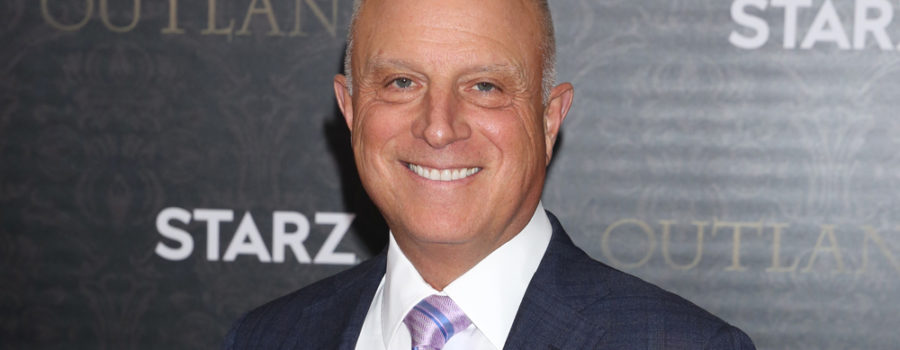



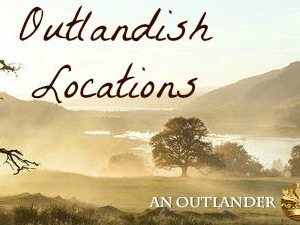

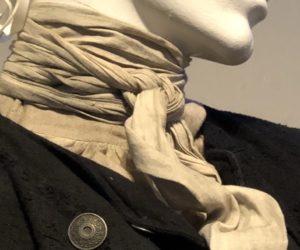
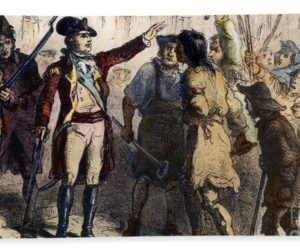

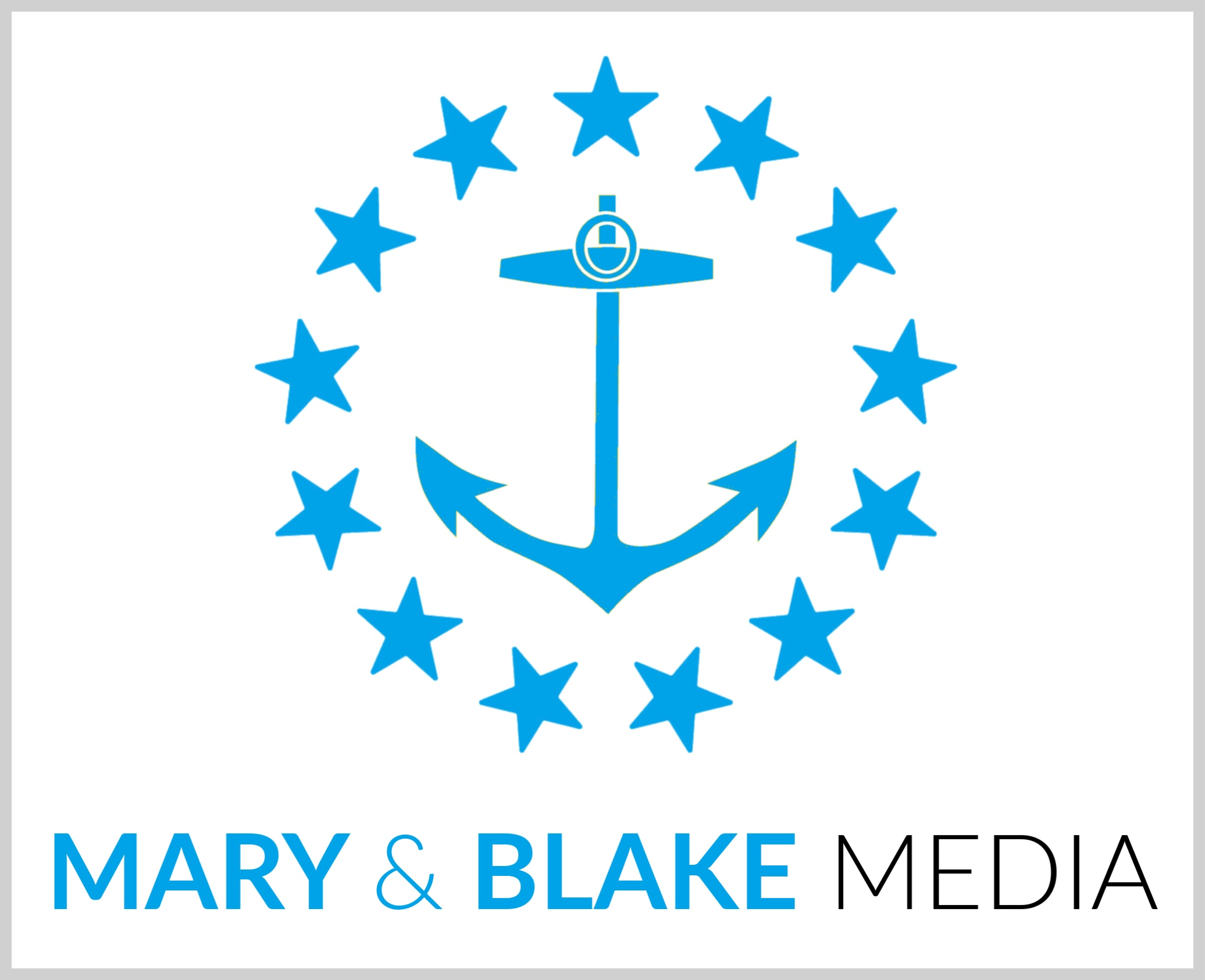
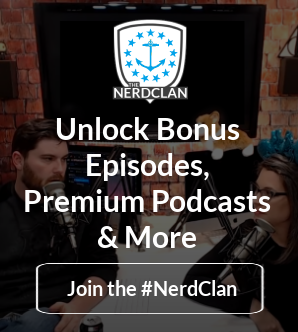


111 Comments
Leave your reply.